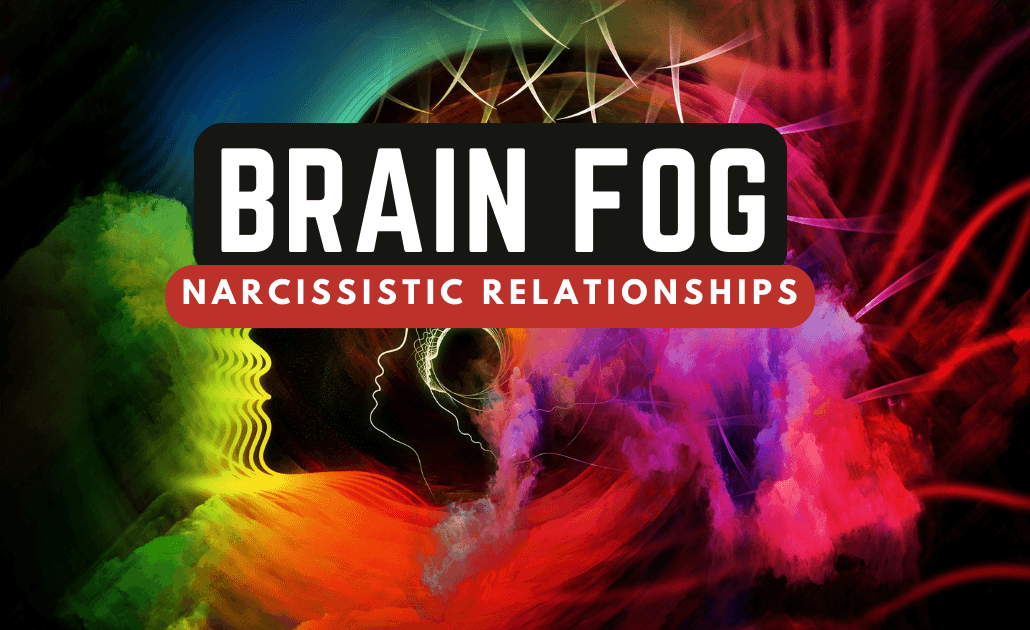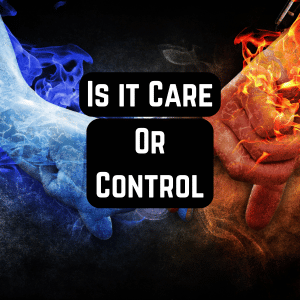Brain Fog Comes from Narcissistic Relationships: 9 Ways This Happens!
Brain fog in relationships, especially in narcissistic relationships, can have various causes and is often a result of the dynamics and behaviors involved.
Here are some of the key factors that contribute to brain fog in narcissistic relationships:
Gaslighting: Gaslighting is a manipulative tactic used by narcissists to make their partner doubt their own perceptions, memories, and sanity. They may twist the truth, deny their actions, or blame their partner for things they did. This constant gaslighting can lead to confusion, self-doubt, and a feeling of mental fog.
Emotional Manipulation: Narcissists are skilled emotional manipulators. They exploit their partner’s emotions and vulnerabilities to control and dominate them. This manipulation can leave the victim feeling mentally drained and unclear about their own feelings and thoughts.
Cognitive Dissonance: In narcissistic relationships, victims often experience cognitive dissonance, a state of mental conflict between their experiences and their beliefs about the narcissist. This conflict can create confusion and brain fog as they struggle to reconcile their emotions with the reality of the relationship.
Constant Criticism and Negativity: Narcissists are prone to constant criticism and negative reinforcement towards their partners. The continuous belittling and demeaning behavior can lead to lowered self-esteem and cognitive functioning, contributing to brain fog.
Isolation and Social Withdrawal: Narcissists often isolate their partners from friends and family, leaving them without a support network. The lack of external perspectives and emotional support can exacerbate the feeling of brain fog.
Lack of Autonomy: Narcissists tend to control every aspect of their partner’s life, leaving them with little autonomy or decision-making power. This loss of control over one’s life can lead to feelings of confusion and mental fog.
Emotional Exhaustion: Dealing with a narcissist can be emotionally draining due to their constant need for validation and admiration. This emotional exhaustion can impair cognitive function and lead to brain fog.
Trauma Bonding: Victims of narcissistic relationships may develop a strong emotional attachment to their abuser due to the cycle of abuse and intermittent reinforcement. This trauma bonding can cloud judgment and lead to confusion in the relationship.
Walking on Eggshells: The fear of triggering the narcissist’s anger or displeasure can lead to constant anxiety and hyper-vigilance in the victim. This state of constant stress can contribute to brain fog and cognitive impairment.
Shop our Amazon Store

It’s important to note that brain fog in narcissistic relationships is a consequence of the manipulative and abusive behaviors of the narcissist.
What are the Cons of Brain Fog?:
Brain fog, also known as mental fog or cognitive fog, refers to a state of mental confusion and difficulty in thinking clearly and focusing. It can have various negative effects on an individual’s overall well-being and daily functioning.
Here are some of the cons of brain fog:
Impaired Cognitive Function: Brain fog can lead to difficulties in processing information, making decisions, and problem-solving. This impairment can affect both work and personal life, leading to decreased productivity and performance.
Memory Problems: People experiencing brain fog may have trouble with short-term memory, forgetting important tasks, appointments, or details. This can lead to increased stress and frustration.
Lack of Concentration: Difficulty in focusing and sustaining attention is a common symptom of brain fog. It becomes challenging to concentrate on tasks, conversations, or even leisure activities.
Reduced Mental Clarity: Brain fog can make thoughts feel hazy and disorganized. This lack of mental clarity can make it hard to articulate ideas or communicate effectively.
Emotional Disturbances: Brain fog can contribute to mood swings, irritability, and heightened emotional sensitivity. The frustration resulting from cognitive difficulties can lead to emotional distress.
Fatigue and Exhaustion: Mental fog can be mentally taxing, leading to feelings of fatigue and exhaustion. The constant struggle to think clearly and function effectively can drain an individual’s energy.
Decreased Problem-Solving Skills: Difficulty in analyzing situations and finding solutions can hinder problem-solving skills. This can be particularly problematic in demanding or high-pressure situations.
Impact on Relationships: Brain fog can affect personal relationships, as the individual may struggle to communicate effectively, remember important events, or engage in meaningful conversations.
Lowered Self-Esteem: Persistent brain fog can lead to feelings of inadequacy and lowered self-esteem. The individual may feel frustrated and incapable of performing at their usual level.
Anxiety and Stress: Dealing with brain fog can lead to increased anxiety and stress, especially when it interferes with important tasks or responsibilities.
Safety Concerns: In some situations, brain fog can pose safety risks, such as forgetting to turn off appliances, neglecting to lock doors, or making errors in tasks that require attention and focus (e.g., driving).
Impact on Overall Quality of Life: Brain fog can significantly diminish an individual’s overall quality of life, affecting their ability to engage in activities they enjoy and hindering personal growth and development.
In conclusion, brain fog can have significant negative consequences on an individual’s cognitive function, emotional well-being, and overall quality of life.
When experienced in the context of enduring narcissistic abuse, brain fog becomes intertwined with the manipulative tactics and behaviors employed by narcissists in relationships.
The key factors contributing to brain fog in narcissistic abuse include gaslighting, emotional manipulation, cognitive dissonance, constant criticism, isolation, lack of autonomy, emotional exhaustion, trauma bonding, and living in a perpetual state of hyper-vigilance.
Gaslighting, the act of distorting reality and undermining one’s perceptions, leaves victims doubting their own sanity, leading to confusion and cognitive impairment.
Emotional manipulation, coupled with constant criticism, erodes self-esteem and cognitive functioning, fostering a perpetual state of mental fatigue and reduced clarity.
Cognitive dissonance, a result of conflicting emotions and beliefs about the narcissist, creates a haze of uncertainty in the victim’s mind. Meanwhile, the isolation and lack of support exacerbate the mental fog, leaving the victim feeling emotionally drained and disconnected from their own thoughts and emotions.
Moreover, the loss of autonomy in a narcissistic relationship restricts the victim’s ability to think and act independently, further contributing to a sense of cognitive confusion.
The trauma bonding experienced in these abusive relationships clouds judgment, making it difficult to perceive the relationship objectively, resulting in persistent brain fog.
Ultimately, living in a constant state of hyper-vigilance, anticipating the narcissist’s reactions, and walking on eggshells heightens anxiety, leading to brain fog and impaired cognitive functioning.
The combination of these factors perpetuates a cycle of mental and emotional exhaustion, eroding the victim’s ability to think clearly and engage fully in life.
Understanding the complex interplay between brain fog and enduring narcissistic abuse is crucial in recognizing and addressing the harmful effects of these toxic relationships.
Seeking support from professionals and loved ones can help victims break free from the cycle of abuse, heal from the mental and emotional toll, and regain clarity, autonomy, and emotional well-being.
It is vital to prioritize one’s mental health and work towards establishing healthier, supportive relationships that foster personal growth and genuine connection.
Have you ever experienced brain fog or moments of mental confusion in your relationships, and did you notice any specific triggers that might have caused it?
Are you aware of the potential impact that enduring narcissistic abuse can have on cognitive function and emotional well-being, and how do you think it might manifest in a person’s daily life?
Can you identify any other strategies or coping mechanisms that may help individuals overcome brain fog and regain mental clarity after being in a narcissistic relationship?
How can society better support individuals who have experienced brain fog due to narcissistic abuse, and what resources or tools can be made available to aid in their healing journey?









